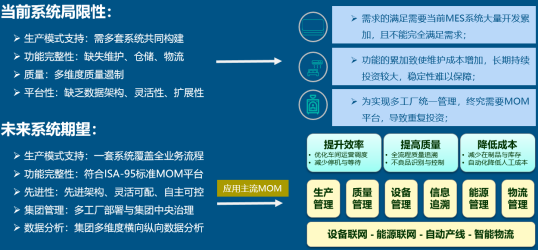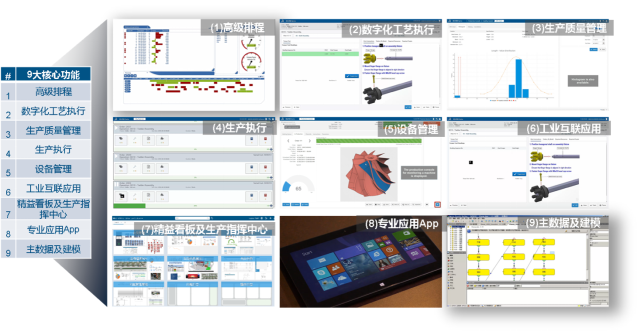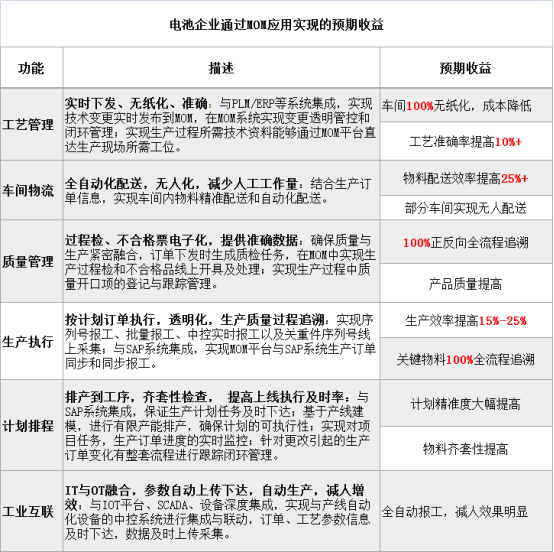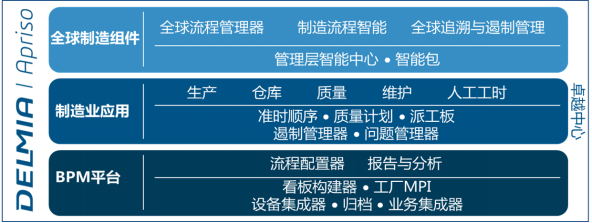Industry new
Smart manufacturing "cheats" behind the new round of power lifepo4 battery expansion
Preparing for the TWh era, power battery companies have entered a new round of large-scale production expansion, and their demand for production and manufacturing has increased significantly. Traditional equipment and manufacturing processes can no longer meet the needs, and the need for intelligent upgrades in lifepo4 battery production and manufacturing is urgent.
Currently, lithium battery production and manufacturing still face six major problems: extremely high quality consistency requirements for the manufacturing process; complex process routes; interaction, compatibility, and coordination between a large number of automated equipment; high-precision requirements for process control ; Intelligent processing of large amounts of data; rapid response to customer needs.
Lithium battery companies are also facing many difficulties such as high capacity delivery pressure and diversified product specifications. In order to further enhance the competitiveness of enterprises, while battery companies continue to improve product quality and production efficiency, they also need to improve the flexibility, information and intelligence of their equipment.
The application of manufacturing operation management system (MOM) in the lithium battery industry is a beneficial weapon to solve the complexity and diversity of the production process. It is gradually becoming a head battery company to shorten the delivery cycle, increase production capacity, ensure quality, and enhance corporate competitiveness. Explore one of the important paths for intelligent upgrade.
As a leader in providing 3DEXPERIENCE solutions to global customers, Dassault Systèmes provides companies and customers with virtual spaces to simulate sustainable innovation. Products cover R&D and design, supply chain planning, engineering simulation, manufacturing operation management and other manufacturing links. Dassault Systèmes' world-leading solutions have changed the way products are designed, produced and technically supported.
The judgment of the global industrial software giant is that the intelligent manufacturing of lithium batteries needs to be fully digitalized and intelligent, and requires a rich and comprehensive shared database, covering many fields from product design to production planning, engineering, production and service, and integrating into suppliers and client.
It is foreseeable that in the future, high efficiency based on stability, flexibility and standardization based on modularization, and high automation and information based on the network will be the core characteristics of the development of intelligent equipment for lithium battery production.
Lithium battery smart manufacturing dilemma and break
Since the development of power batteries, the degree of automation in the production and manufacturing of lithium batteries has been significantly improved, but there are still many problems to be solved in the intelligent manufacturing of lithium batteries.
First, most of the hardware equipment for lifepo4 battery manufacturing is collected in segments, and there are problems of compatibility and diversity among the equipment, resulting in low integration of various industrial software, and data cannot be shared and circulated.
Second, the production and test data collection of lithium battery products is large, and each process has different management and control requirements. The manufacturing mode adopts a mixed process and discrete mode, which further aggravates the difficulty of industrial digitalization/intelligent manufacturing.
The third is that the size and standard specifications of power batteries are different. Domestic battery companies have produced more than 150 different specifications of batteries, which restricts the development of standardized large-scale and intelligent production.
Fourth, the power battery product design and manufacturing process are not fully mature, especially the key production process design of battery modules is not yet mature, the verification is insufficient, the one-time pass rate is low, and it is difficult to achieve online automatic testing and quality tracking.
However, the production of power battery systems is still dominated by semi-automation, and only a few battery manufacturers have realized the automated production of power battery modules or modules.

Current status and goals of digital transformation
In view of the many problems in the current system, Dassault Systèmes believes that the manufacturing operations management system (MOM) can effectively solve the above-mentioned problems encountered in the transformation and upgrading of intelligent manufacturing in lithium battery production.
The basis for making the above judgment is based on the 6 major advantages of the application of the MOM lithium battery industry.
1. Real-time quality monitoring, changing the post-remedy of quality problems to pre-prevention; 2. Process critical parameter monitoring, as far as possible to ensure the process safety of lithium batteries; 3. Detailed packaging records, and be fully prepared to respond to customer complaints; 4. Real-time query of output and quality, reducing the delivery pressure of the planning department; 5. Realizing the traceability of the production process, quickly and accurately determining the scope of the recall; 6. Paperless production management, saving labor costs.
Dassault Systèmes believes that MOM will empower battery companies to upgrade their smart manufacturing. The application of MOM in the production and manufacturing of lithium batteries is becoming an important path for head battery companies to shorten the delivery cycle, increase production capacity, ensure quality, enhance corporate competitiveness, and explore intelligent upgrades.
Integrated MOM platform empowers lithium battery smart manufacturing upgrade
Combined with MOM's "open up" in various processes of lithium battery production, data sharing, production link monitoring and feedback, department/supply chain coordination, etc., the application of MOM will promote the "flexibility" and "flexibility" of lithium battery production and manufacturing. key.
According to the process and characteristics of lithium battery production, the company plans 9 core functions based on the MOM application in the lithium battery production process: advanced scheduling, digital process execution, production quality management, production execution, equipment management, industrial interconnection applications, and lean Kanban and production command center, professional application App, master data and modeling.

MOM core function architecture diagram
Dassault Systèmes further introduced that the construction and implementation of an integrated MOM system can empower battery companies to transform and upgrade smart manufacturing, and continuously improve process management, planned production and execution, equipment interconnection, quality management, logistics and other business processes The level of automation.
Its integrated MOM system effectively combines IT and OT through device interconnection, improves the intelligent level of manufacturing equipment, realizes factory production automation, unmanned, and intelligent, and can greatly shorten the manufacturing cycle of enterprise-related products and reduce operating costs. ,Increase productivity.
For battery companies, through the implementation of the MOM system, the foundation of process, planning and execution can be consolidated, process modeling, planning refined, and execution transparent can be achieved; at the same time, the capabilities of distribution and interconnection will be complemented to achieve precise distribution and elements Interconnection; in terms of quality, coordination and management decision-making, realize comprehensive quality control, data standardization, and scientific decision-making.

Note: The above data are empirical data and are for reference only.
Dassault Systèmes emphasized that its DELMIA Apriso is a configurable manufacturing operation management platform (MOM) based on business processes, built in accordance with the ISA-95 standard, covering manufacturing links including but not limited to resource planning, manufacturing, quality control, and warehousing. Logistics, equipment IoT, and personnel management are widely used in many industries such as aerospace and defense, automobiles and parts, industrial equipment, marine and marine engineering, high-tech electronics, life sciences, and energy.

DELMIA Apriso Manufacturing Operation Management Platform Architecture
Compared with the general manufacturing execution system (MES), DELMIA Apriso has a wider business coverage, better supports multi-factory control and rapid deployment and deployment, more professional manufacturing big data analysis and real-time monitoring, and more flexible Business process and logic configuration.
Just recently, Dassault Systèmes was selected as the leader of the "Gartner Manufacturing Execution System (MES) Magic Quadrant Report" four times, fully demonstrating the strength of this industrial software giant in the field of manufacturing systems.
It is worth mentioning that, from 14:00-15:10 on May 21st, the "Dassault Systèmes lifepo4 battery Intelligent Manufacturing Transformation" webinar will be held. If you want to better understand Dassault Systèmes' DELMIA Apriso products and applications, welcome Press and hold the QR code below or move to read the original text to register for the conference, and interact with MOM experts in real time.
News
Contact Us
Companyname:Shenzhen Top New Energy Co.,Ltd.
Contact:Mr.Steven Liu
Tel:86-13602523311
E-mail:sales@topnewenergy.com
Address:Bldg 4, No. 2, Xingye Road, Songshan Lake Park, Dongguan, Guangdong.